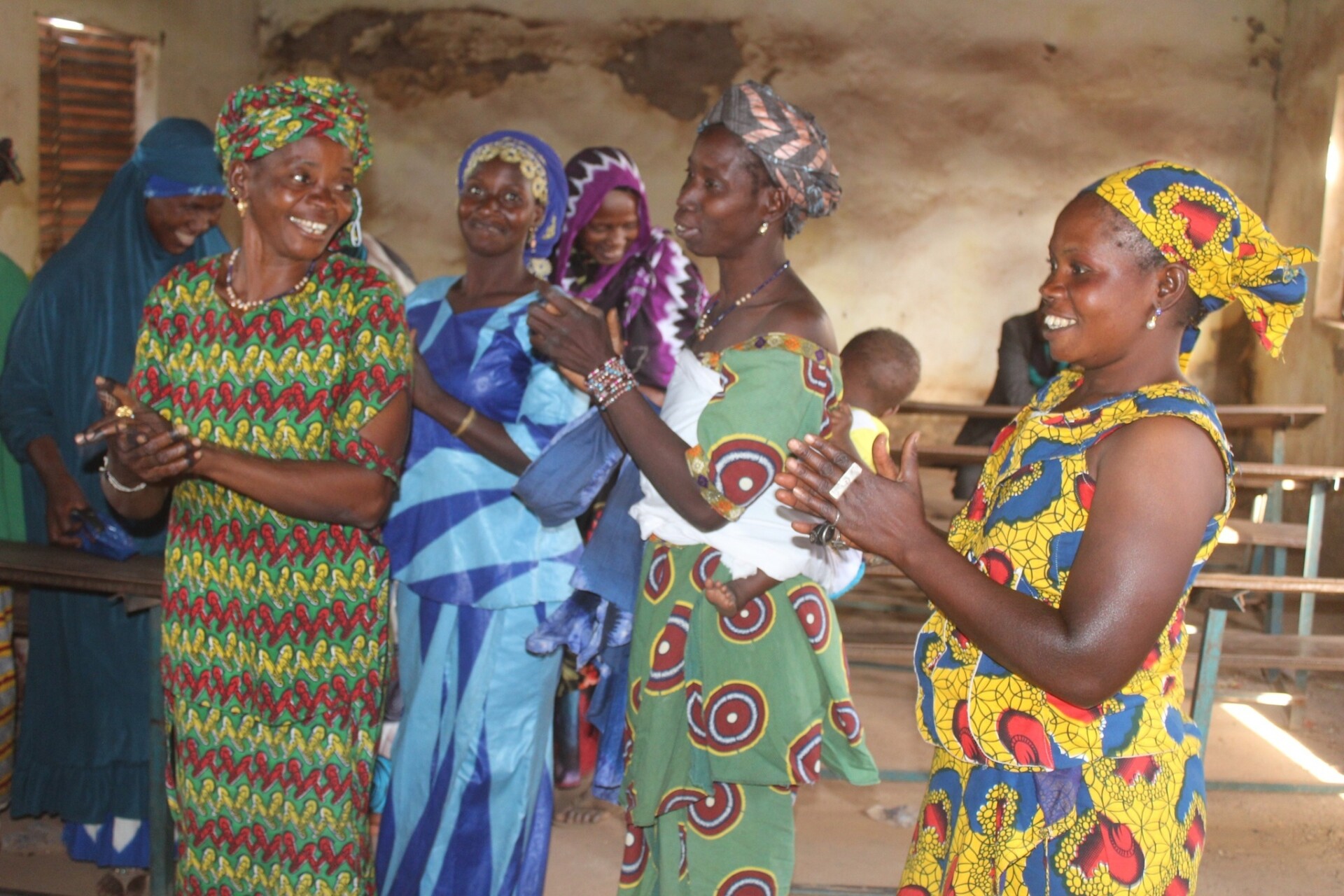
News
In Kayes, the Yellen project concludes 5 years of action for sexual and reproductive health
September 3, 2025“I went through six miscarriages, each more painful than the last,” says Coumba (pseudonym), a resident of a village in the Kayes region of Mali. “No one seemed to understand why this was happening to me.”
For a long time, Coumba suffered in silence. It was only after taking part in awareness activities organized by the Yellen project that she understood what was happening and realized she could receive appropriate medical care.
Launched in April 2020, the Yellen Project: Rights and innovations in sexual and reproductive health, active in seven health districts across the regions of Kayes, Nioro and Kita, has tackled many barriers to women’s and adolescent girls’ sexual and reproductive health and rights, including gender-based violence, restrictive social norms, and difficulties in accessing care. This project built on two earlier initiatives funded by the Government of Canada in the Kayes region — PRSSD (2010–2018) and MEDIK (2015–2019) — as well as on several research projects focusing on innovations in community mobilization, reproductive health, and gender equality.
Thanks to the knowledge acquired during awareness sessions, referrals to adapted health services, monitoring by community health workers, and improvements supported by the Yellen project and earlier initiatives to enhance service quality, Coumba was able to carry her pregnancy to term and give birth to a healthy daughter.
“The Yellen project gave me my life back. Other women in the village will also benefit from this support,” she says today.
Her story reflects a broader collective change already underway, supported by Canada-funded projects in the region.
In Nioro, ten villages have collectively renounced child marriage. In Bafoulabé, 23 villages have committed to abandoning female genital mutilation. In Diéma, five municipalities have officially ended the practice, backing their decision with letters signed by village chiefs and mayors.
The project’s approach is rooted in strong community mobilization. Awareness campaigns address gender equality, family planning, and the fight against gender-based violence. Structures were created or strengthened, such as:
-
Women Users Committees (CFU): created to strengthen the role of women in promoting reproductive health services, they value women’s leadership and the fight against gender-based violence.
-
Village Health Solidarity Funds (CVSS): community funds that support access to health services and women’s economic autonomy.
-
Motorbike Ambulance Management Committees (CGMoA): responsible for facilitating obstetric evacuations and improving access to emergency care, while also increasing women’s participation in local governance.
In total, 487 villages benefited from community activities on sexual and reproductive health.
Aminata (pseudonym), a high school senior, testifies to the project’s impact in her life.
“Before, I knew nothing about my menstrual cycle. I lived through my periods without understanding what was happening in my body,” she explains. “Today, I know how to calculate my cycle and how to prevent infections.”
Thanks to the Yellen project, she participates in activities that break the silence surrounding sexual health and violence. Among other initiatives, the Ki La Di pilot project provided adolescents with a reproductive health information app and a WhatsApp group. Through interactive information and awareness activities, feedback has shown a significant improvement in their knowledge. The app is expected to remain active after the project, supported by the National Office of Reproductive Health (ONASR). In addition, 10,000 reusable sanitary pads were distributed to support girls’ school attendance and well-being.
Since its launch, the project has reached over 327,220 women of childbearing age and trained more than 1,376 women and adolescent girls on the prevention and management of gender-based violence. In total, over 1.2 million people have been sensitized on sexual and reproductive rights, gender equality, and the fight against violence.
Men have also been engaged and mobilized. The project invests in increased mobilization through “husbands’ schools,” where more than 5,400 men discussed topics often considered taboo. Tools such as a collection of messages for couples and schools are being finalized to promote positive masculinity, a concept encouraging men to embrace non-violent behaviors and to act as partners and allies of women.
“The inter-school contest was an unforgettable experience: meeting other young people, sharing ideas, and speaking before administrative authorities boosted my confidence,” says Aminata.
The project relies on a broad network of partners: regional government services, teaching academies, local NGOs (AMADECOM, YAGTU), and community associations (ASACO, FELASCOM). Training hubs have been established, and 108 community health workers have already been trained on gender-based violence and gender equality.
The Yellen project was implemented by a consortium led by the International Health Unit of the University of Montreal Hospital Centre (USI-CHUM) and the Centre for International Studies and Cooperation (CECI), with financial support from the Government of Canada through Global Affairs Canada.
Through the Yellen project, Mali takes a concrete step toward a more equal society, where every woman and every girl can access quality care, claim her rights, and build her future with dignity.
Read the impact summary of the project (in french)